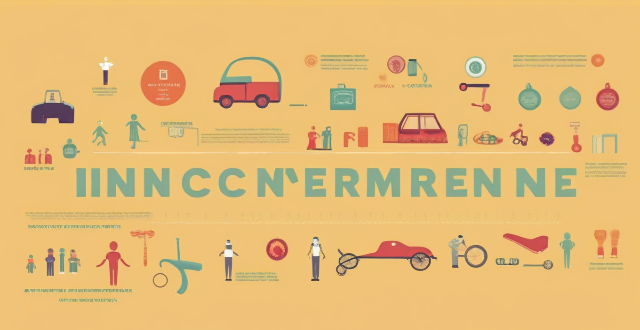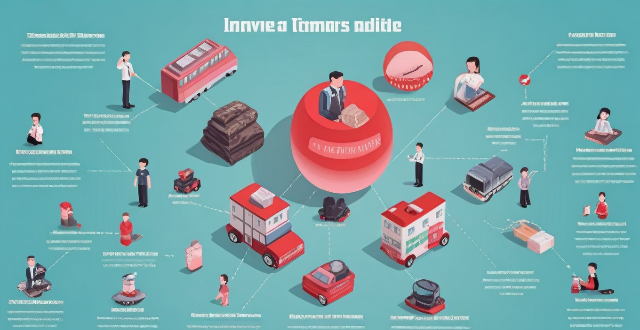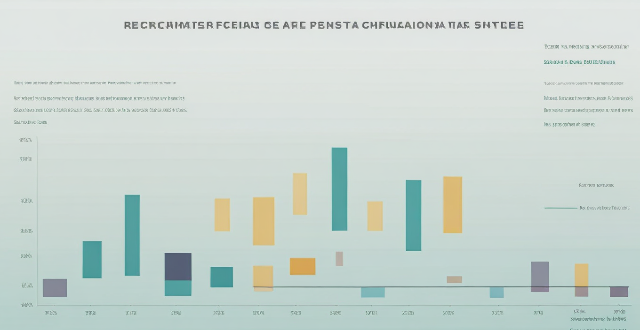Financial Insurance

How much life insurance do I need ?
Determining how much life insurance you need is a complex process that depends on your financial situation, income replacement needs, debts and final expenses, current coverage, and consultation with a professional. Assessing your financial needs, calculating income replacement needs, considering debts and final expenses, evaluating current coverage, and consulting with a professional are all important steps to ensure you have the right amount of life insurance coverage for your loved ones.

How can women protect their assets and ensure long-term financial security ?
The article provides a list of strategies that women can employ to ensure their financial security over the long term. These include building an emergency fund, investing in retirement accounts, purchasing life insurance, creating a will, considering long-term care insurance, educating oneself about finance, working with a financial advisor, and prioritizing career development. Each of these steps is crucial in its own way for safeguarding one's assets and ensuring financial stability.

What is the difference between term life insurance and whole life insurance ?
Difference between term life insurance and whole life insurance: - Term life insurance is temporary coverage, no cash value, renewable, and affordable. - Whole life insurance is permanent coverage, accumulates cash value, has level premiums, and is more expensive.

How does sports insurance work ?
Sports insurance is a specialized form of insurance that protects athletes and sports participants from financial losses due to injuries or accidents that may occur during physical activities. It provides coverage for medical expenses, lost wages, and other related costs associated with sports-related injuries. There are several types of sports insurance policies available, including personal accident insurance, liability insurance, equipment insurance, and travel insurance. Sports insurance typically covers a wide range of sports-related injuries and accidents, including medical expenses, disability, funeral costs, legal fees, equipment damage or theft, and travel expenses. The cost of sports insurance varies depending on several factors, including the type of sport, the level of risk involved, the policyholder's age and health status, and the amount of coverage desired.

How does credit history influence insurance rates ?
The text discusses how credit history influences insurance rates. Insurers use credit history as a predictor of future claims and risk, with studies showing that individuals with poor credit histories are more likely to file claims and cost insurers more money than those with good credit histories. Several factors can affect insurance rates based on credit history, including payment history, amount owed, length of credit history, and types of credit used. Maintaining a strong credit history can potentially save money on insurance premiums and demonstrate financial responsibility to insurers.

Is sports insurance necessary for amateur athletes ?
This article explores the necessity of sports insurance for amateur athletes. It defines sports insurance as coverage against injuries sustained during sports activities, including medical expenses, lost income, rehabilitation costs, equipment damage, and liability coverage. The article highlights the risks and costs associated with sports injuries, noting that 62% occur during recreational activities rather than competitive events. It argues that sports insurance offers peace of mind, financial protection, and access to quality care for amateur athletes but may not be necessary for all. Factors to consider when deciding whether to purchase sports insurance include risk level, personal finances, existing health insurance, and frequency of participation.

What is sports insurance and why is it important ?
Sports insurance, also known as athletic or sports-related insurance, is a type of insurance that covers athletes and participants in physical activities from injuries or accidents. It includes coverage for medical expenses, lost wages, and other damages resulting from an injury or accident. Sports insurance is important because it provides protection against injuries, lost wages, liability, and offers peace of mind for athletes. It allows them to participate in their chosen sport without worrying about the financial implications of an injury or accident.

Are there any tax benefits associated with buying certain types of insurance ?
The text discusses the tax benefits associated with buying various types of insurance, including health insurance, life insurance, disability insurance, long-term care insurance, and homeowner's insurance. The benefits include tax-deductible premiums and tax-free death benefits for certain policies. It is emphasized that consulting a tax professional or financial advisor is crucial to understand how these benefits apply to individual situations, as tax laws vary by country and can be complex.

What role does the insurance industry play in mitigating climate change ?
The insurance industry plays a crucial role in mitigating climate change through various mechanisms. They assess and price risks associated with climate change, providing financial incentives for mitigation, invest in sustainable projects, apply stricter underwriting criteria for high-emission industries, collaborate on research efforts, innovate insurance products, educate clients about climate risks, lobby for climate policies, and support reinsurance to share risks globally and back catastrophe bonds. By integrating climate considerations into their business models, insurers can drive progress toward a more sustainable future.

How can I ensure that I'm getting the best price for my insurance ?
To ensure the best price for your insurance, shop around using comparison websites and direct insurers, consider brokers, increase your excess, pay annually instead of monthly, improve security measures, build a no-claims bonus, review coverage regularly, take advantage of discounts, maintain good credit history, avoid small claims, and renew early. These steps can help you save money on insurance while still ensuring adequate coverage.

How does age affect the cost of insurance ?
The article discusses how age affects the cost of insurance, with younger drivers typically paying higher premiums than older drivers. It highlights that health insurance costs can increase as people age due to increased risk factors and the need for more frequent medical care. Life insurance rates may also rise with age, while auto insurance rates may decrease for retired drivers who spend less time on the road. Homeowners insurance costs depend on the condition and value of the home, but older homes may require more maintenance and repairs. The article provides tips for managing insurance costs as you age, including reviewing coverage regularly, maintaining a good driving record, staying healthy, and considering long-term care insurance.

What kinds of questions should I expect during the insurance application process ?
When applying for insurance, you will be asked a variety of questions to assess your risk level and determine the appropriate coverage and premiums. These questions cover personal information, employment details, health history, lifestyle habits, driving record, insurance history, financial information, beneficiaries and dependents, and additional questions related to hobbies, travel plans, and pets. Honesty is crucial when answering these questions as providing false information can result in denied claims or policy cancellation. It's essential to review your application carefully before submitting it to ensure all information is accurate and complete.

Is there an age limit for buying travel insurance ?
Is there an age limit for buying travel insurance? Most providers do not impose any restrictions based on age, but some policies may have specific requirements or limitations regarding age. When purchasing travel insurance, consider factors such as coverage options, pre-existing medical conditions, adventure sports coverage, cost, and reputation.

How much does sports insurance cost ?
The cost of sports insurance varies based on the type of sport, level of coverage, and individual's age and health status. High-risk sports typically have higher premiums than lower-risk activities. Basic policies may only cover medical expenses and lost wages due to injury, while more comprehensive plans may include additional benefits such as disability coverage and accidental death and dismemberment insurance. Younger athletes may have lower premiums than older ones, and individuals with pre-existing medical conditions or a history of injuries may face higher premiums. Tips for finding the best sports insurance policy include shopping around, considering bundling, and asking about discounts.

How long before my trip should I buy travel insurance ?
Travel insurance is a crucial component of any trip, offering coverage for unexpected events such as medical emergencies, trip cancellations, and lost luggage. The best time to buy travel insurance depends on various factors, including the timing of your purchase, trip details, personal situation, and research. Timing matters when buying travel insurance. It's recommended to buy early for peace of mind, better pricing, and more options. However, waiting too long can increase the risk of forgetting, limit options, and create coverage gaps. Trip details such as destination, length of stay, and activities should also be considered. Personal situation factors like health status, financial protection, and travel companions' needs should also influence the timing of your purchase. Practical steps include researching policies, comparing online, reading reviews, consulting a broker, completing an online application, confirming details, and keeping records. Ideally, travel insurance should be purchased at least a few weeks before the trip to ensure adequate coverage and avoid last-minute stressors.

Are there any exclusions or limitations to sports insurance coverage ?
Sports insurance is designed to protect athletes, coaches, and organizations from financial losses due to injuries, accidents, or other unforeseen events. However, there are certain exclusions and limitations that may apply, including pre-existing conditions, high-risk sports and activities, alcohol and drug use, deductibles and co-payments, policy limits, and time limits for filing claims. It is important to be aware of these factors when purchasing sports insurance to ensure adequate coverage for your needs.

What are some common misconceptions about personal finance that financial education aims to correct ?
The text discusses common misconceptions about personal finance, such as the belief that saving is more important than investing and that credit cards are inherently bad. It also touches on the perceived tedium of budgeting, the underestimation of life insurance's importance, and the notion that retirement savings are unattainable for some. Moreover, it dispels the myth that all investments carry high risk and emphasizes the necessity of having a will. Overall, the article highlights how financial education can correct these misguided beliefs and help individuals manage their money wisely to achieve their financial objectives.

How often should I review and update my insurance coverage ?
Insurance coverage is a vital part of financial planning, and it's essential to ensure that policies are up-to-date and reflect current needs. Here's a guide on how often to review and update insurance coverage: 1. **Life Events**: Review coverage during significant life events like marriage, divorce, having children, buying a home, retirement, or job changes. 2. **Annual Check-ups**: Even without major life events, annual reviews help ensure coverage sufficiency, competitive rates, and accurate policy details. 3. **Quarterly Check-ins**: These can aid in monitoring premium payments and understanding policy updates or regulatory changes. 4. **Monthly Reminders**: Set reminders to monitor claims processing, check for discounts, and update emergency contact information. By staying proactive and informed about insurance policies, individuals can ensure they have the right coverage for their evolving needs.

How do insurance mechanisms support disaster risk management and recovery processes ?
Insurance mechanisms play a vital role in supporting disaster risk management and recovery processes, providing financial protection to individuals, businesses, and governments against the economic impacts of natural disasters. They encourage risk mitigation measures, offer financial protection through various policies, facilitate recovery and reconstruction, invest in catastrophe modeling and research, and create public-private partnerships to improve disaster preparedness and response.

What happens if I get injured while playing sports and don't have insurance ?
Injuries are a common occurrence in sports, and they can range from minor to severe. When you get injured while playing sports, the first thing that comes to mind is seeking medical attention. However, what happens if you don't have insurance? This article will explore the consequences of not having insurance when you get injured while playing sports. If you get injured while playing sports and don't have insurance, you will be responsible for paying all the medical expenses out of pocket. This can include doctor visits, hospital stays, surgery, physical therapy, and medication. Depending on the severity of the injury, these expenses can add up quickly and become a financial burden. Without insurance, you may have limited access to healthcare providers. Some doctors and hospitals may refuse to treat patients without insurance or may require upfront payment for services rendered. This can delay treatment and potentially worsen your condition. If your injury occurs during a team sport or an organized event, there may be legal implications if you don't have insurance. The organizers or other players may hold you liable for any damages or injuries that occur during the game. This can result in lawsuits and legal fees. Not having insurance can also have long-term effects on your health and well-being. If you cannot afford proper medical care or physical therapy, your injury may not heal properly, leading to chronic pain or disability. This can impact your ability to work or participate in activities you enjoy. The best way to avoid these consequences is to get insurance coverage. There are various types of insurance policies available, including health insurance, accident insurance, and sports-specific insurance. Research and compare different policies to find one that meets your needs and budget. Another way to reduce the risk of injury is to participate in low-risk sports or activities. Choose sports that are less likely to cause severe injuries, such as swimming or cycling, instead of contact sports like football or rugby. Wearing protective gear can also help prevent injuries while playing sports. Make sure to wear appropriate gear such as helmets, pads, and mouthguards when participating in high-risk activities. If you do get injured while playing sports, seek medical attention promptly even if you don't have insurance. Some healthcare providers offer payment plans or sliding scale fees based on income, which can help alleviate some of the financial burden associated with receiving medical care. In conclusion, getting injured while playing sports without insurance can have serious consequences, including high medical expenses, limited access to healthcare, legal liability, and long-term effects on your health and well-being. To avoid these consequences, it is important to get insurance coverage, participate in low-risk sports, use protective gear, and seek medical attention promptly if needed.

Can I get sports insurance for my child who plays school sports ?
Sports insurance can provide coverage for athletes participating in organized sports, including school sports. Consider factors like age limit, type of sports, level of competition, and coverage details when selecting a policy. Cost, duration, additional benefits, and the application process are also important considerations. While sports insurance offers peace of mind and financial protection, it can be expensive and may have limitations. Evaluate your child's needs and consult with an insurance professional to make an informed decision.

What is private mortgage insurance (PMI) and do I need it ?
Private Mortgage Insurance (PMI) is a type of insurance that protects the lender, not the borrower, in case of default on a mortgage loan. It is typically required when a homebuyer makes a down payment of less than 20% of the home's purchase price. Whether you need PMI depends on factors such as your down payment, credit score, loan-to-value ratio, and type of loan. Consider the cost of PMI and alternatives before deciding to obtain it.

How can smart contracts be used to streamline financial transactions ?
Smart contracts can streamline financial transactions by automating processes, reducing costs, and increasing efficiency. They can automate payments and transfers, act as escrow services, create loan agreements, streamline insurance claims, and facilitate trading and exchanges of financial assets. As blockchain technology evolves, we can expect more innovative uses for smart contracts in the financial industry.

What role does life insurance play in estate planning ?
Life insurance is a crucial tool in estate planning, offering solutions for liquidity needs, tax considerations, charitable giving, business succession, income replacement, and wealth preservation. It helps beneficiaries gain immediate access to cash, manage estate taxes, support philanthropic goals, facilitate business transitions, replace lost income, and transfer wealth efficiently. Life insurance policies can be tailored to fit individual needs, making them a versatile component of any comprehensive estate plan.

Will travel insurance cover me if I get sick while abroad ?
Travel insurance can cover travelers if they get sick while abroad, but coverage depends on the policy's terms and conditions. Factors to consider include coverage limit, deductible, pre-existing conditions, exclusions, emergency evacuation/repatriation, and claims process. When choosing a travel insurance policy, assess your needs, compare policies, read reviews, purchase early, and consult a professional if necessary.

What kind of insurance coverage should I have for disaster preparedness ?
When it comes to disaster preparedness, having the right insurance coverage is crucial. Here are some types of insurance that you should consider: - Homeowners Insurance: Covers the structure of your home, personal belongings, and provides temporary housing expenses if you cannot live in your home due to a covered loss. - Flood Insurance: Covers damage to your home and its contents caused by flooding and requires an Elevation Certificate. - Earthquake Insurance: Covers damage to your home's structure and personal belongings caused by an earthquake. - Windstorm/Hurricane Insurance: Covers windstorm or hurricane damage with a specific deductible and exclusion clauses. - Liability Insurance: Covers bodily injury or property damage that you cause to others and provides additional liability coverage beyond standard policies. - Business Insurance: Covers lost income and extra expenses if your business is interrupted by a disaster and damage to your business property. - Life Insurance: Provides coverage for a specific period of time or lifetime coverage and builds cash value over time. - Health Insurance: Ensures coverage for medical expenses related to disasters and ER visits during emergencies.

Does insurance cover lost or stolen iPhones, and how does it work ?
Insurance coverage for iPhones is designed to protect against unforeseen incidents such as damage, theft, or loss. Most policies include coverage for lost or stolen devices under specific conditions, requiring reporting to the police and insurance provider, potential deductible payments, and adhering to any waiting periods or limitations. Key features of iPhone insurance plans often include accidental damage protection, theft and loss protection, malfunction coverage, and worldwide coverage. When selecting an insurance plan, consider cost versus coverage, policy terms and conditions, provider reputation, and additional benefits. Insuring your iPhone can provide valuable protection and save you significant expenses in case of unfortunate events.

How do I compare different travel insurance policies ?
The article provides a comprehensive guide on how to effectively compare different travel insurance policies. It outlines four key steps: determining needs, checking coverage and benefits, comparing prices and deductibles, and reading reviews and asking for recommendations. The article emphasizes the importance of considering factors such as destination, duration, activities, health, and budget when determining needs. It also highlights the importance of looking for policies that provide comprehensive coverage for medical expenses, trip cancellation and interruption, baggage loss and delay, emergency evacuation and repatriation, and travel assistance services. Finally, it suggests comparing prices and deductibles and seeking out reviews and recommendations from others to make an informed decision. Overall, the article offers valuable insights into the process of selecting the right travel insurance policy.

How has the COVID-19 pandemic highlighted the importance of financial literacy ?
The COVID-19 pandemic has underscored the importance of financial literacy. It helps people navigate job losses, market volatility, personal finance management, long-term planning, and healthcare needs. Financially literate individuals are better equipped to handle economic disruptions and make informed decisions about their money. Seeking support and resources is also crucial during challenging times. Overall, financial literacy is essential for personal resilience and economic stability in the face of global crises like the pandemic.

Who are the main financial regulators in the world ?
Financial regulators worldwide play a pivotal role in maintaining the stability and integrity of the global financial system. Key institutions include the SEC, Fed, CFTC, and FINRA in the US; ECB and ESMA in the EU; BoE and FCA in the UK; BoJ and FSA in Japan; and PBOC and CBIRC in China. The Basel Committee on Banking Supervision and IOSCO also set global standards for bank regulation and securities markets, respectively. These regulators collaborate to address cross-border issues and enhance the health and integrity of the global financial system through implementing regulations, monitoring market activities, promoting transparency, and taking action against illegal or unethical practices.